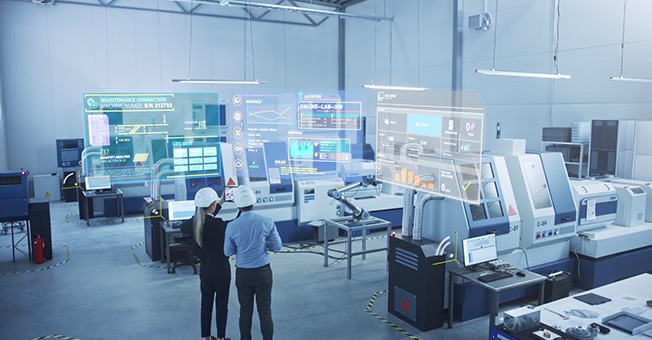This is how you cost-efficiently realize a proof-of-concept
for Predictive Quality and Process Optimization in your production.
You will receive real-time predictions about potential rejects per production unit or batch.
You will find out the individual reasons for each scrap in the form of recognized process influences automatically or as a report.
You will receive optimization suggestions in real time to prevent or reduce rejects.
Understand and improve process influences
Control quality and rejects
Configure process parameters
optimally
Monitor software and resource
usage
Visualize the impact and importance of each process variable. Share reports and derive improvements.
Predict quality and find hidden causes of problems. Increase process capability & Quality rate.
Automatically configure recommended process settings for higher reliability & Reproducibility.
Find out who is using your software and with what resources. Scale the software internally easily, securely & stable.

With Predictive Quality, production processes can be optimized from a quality-relevant point of view. In general, the following specific advantages result:
Project Subtitle
Automation of network edge infrastructure & applications with artificial intelligence
Companies & Partners
Opel Automobile GmbH, Frau…
Project Subtitle
Quality Control of Vehicle Assembly using an Ultrasonic Imaging Sensor with Embedded Artificial Intelligence
Companies and Partners
Tessonics…
Project Subtitle
Data-based evaluation of the wire electrical discharge machining process
Companies & Partners
WBA Aachener Werkzeugbau Akademie GmbH, Mak…
Understand the use case, goals and requirements
Check whether and to what extent your data is suitable
Optimization of data quality and structure
Evaluation of data content and value potential
Determination of feasibility for your use case
Determination of return on investment
Roll-out roadmap after successful proof-of-concept
Predictive Quality Management uses machine learning algorithms to predict and prevent product defects before they occur. For this purpose, data from various sources is used, including material logs, supplier documents, interfaces to production facilities and quality assurance.
The quality data is correlated with the other data to predict the probability of defects or to determine optimal manufacturing parameters for the best possible product quality.
The following stages can be identified for the realization of predictive quality:
For this reason, many companies are turning to the topic of predictive quality and process optimization. IconPro’s experts support you in evaluating your use case and using predictive quality to your advantage.
Machine Vision
Predictive Maintenance
Trend analysis & Prediction
Software Engineering
Data Screening & Analysis
What is the definition of predictive quality?
Predictive quality is a method accordin to which quality and production data are correlated using machine learning. With the help of the derived models, the quality of products is already predicted during production. In addition, optimal process parameters can be determined for the best possible quality. Predictions and optimizations are used for minimizing inspection effort and scrap.
What are the advantages of Predictive Quality?
By determining and considering optimal process parameters during the process, scrap costs are dramatically reduced. Predictions about the quality during production allow dynamic and intelligent sample testing, which reduces the amount of testing required. Adding furhter value to a product with a high level of vertical integration can be intelligently stopped in case of a predicted high scrap probability.
What are use cases for Predictive Quality?
The application of predictive quality in production is possible for different industries. One example of the use of predictive quality is the production of pumps for dishwashers, where parameters such as the temperature during injection molding or screwing data were recorded along the entire manufacturing and assembly chain in order to predict quality or determine process corrections. Waste was thus significantly reduced.